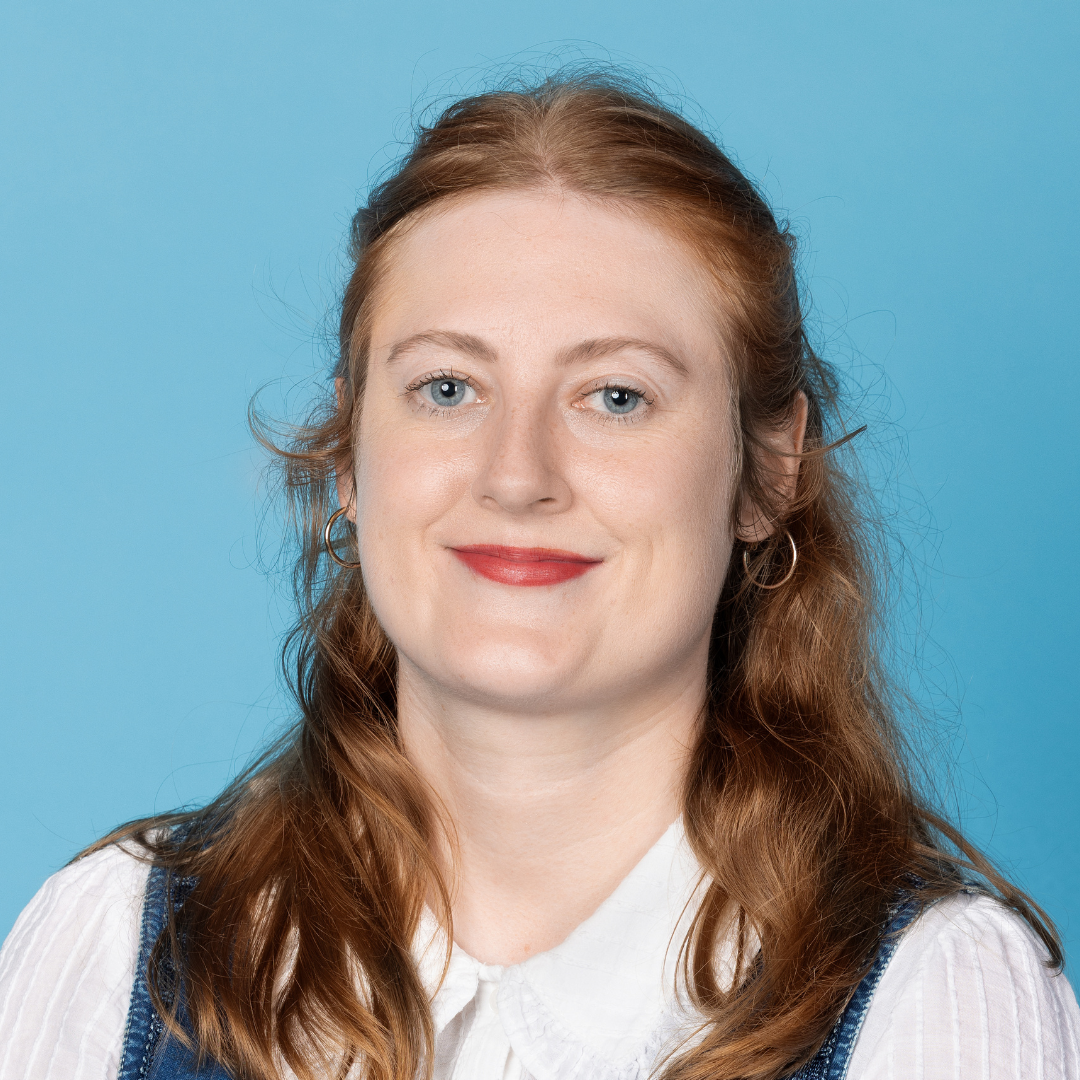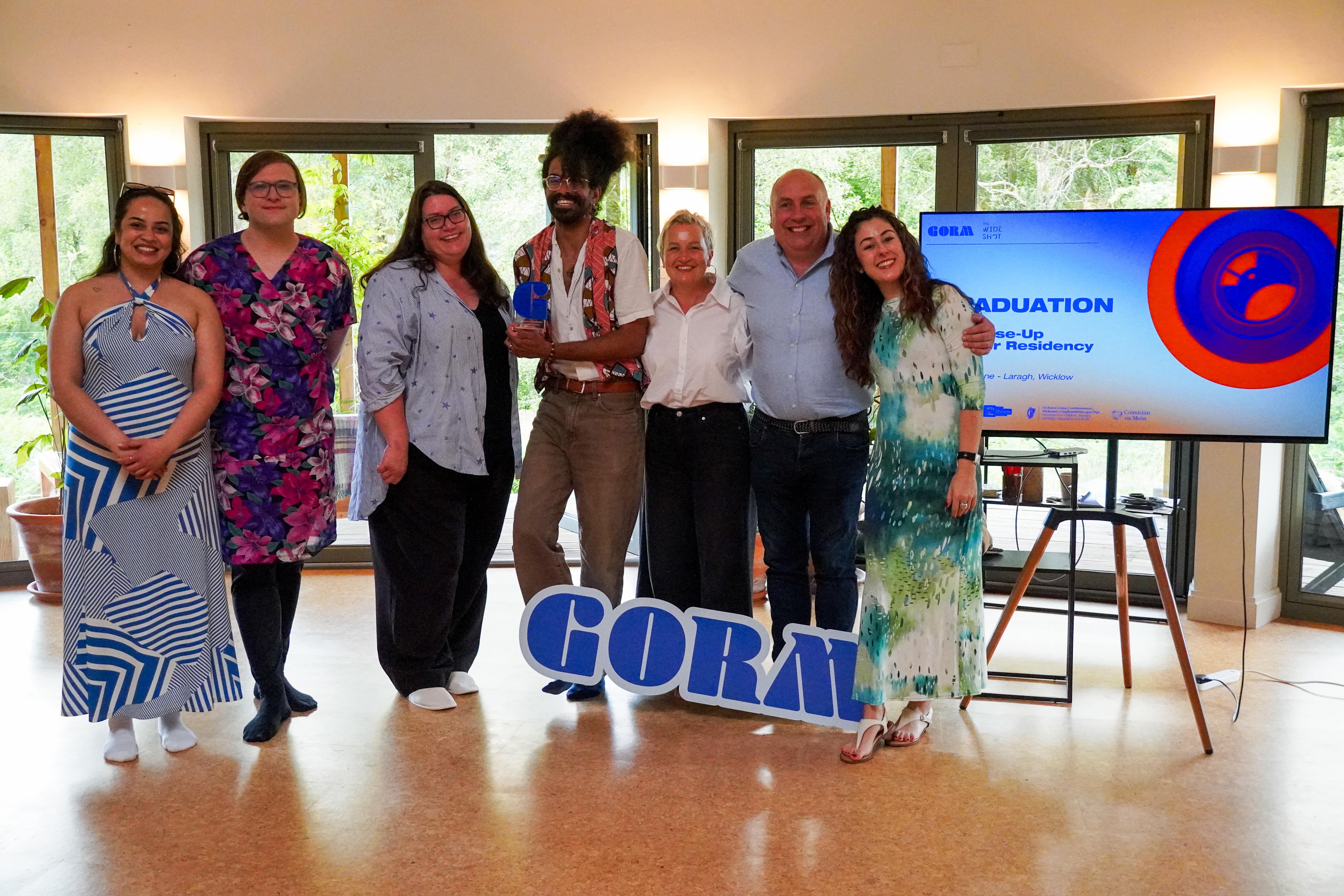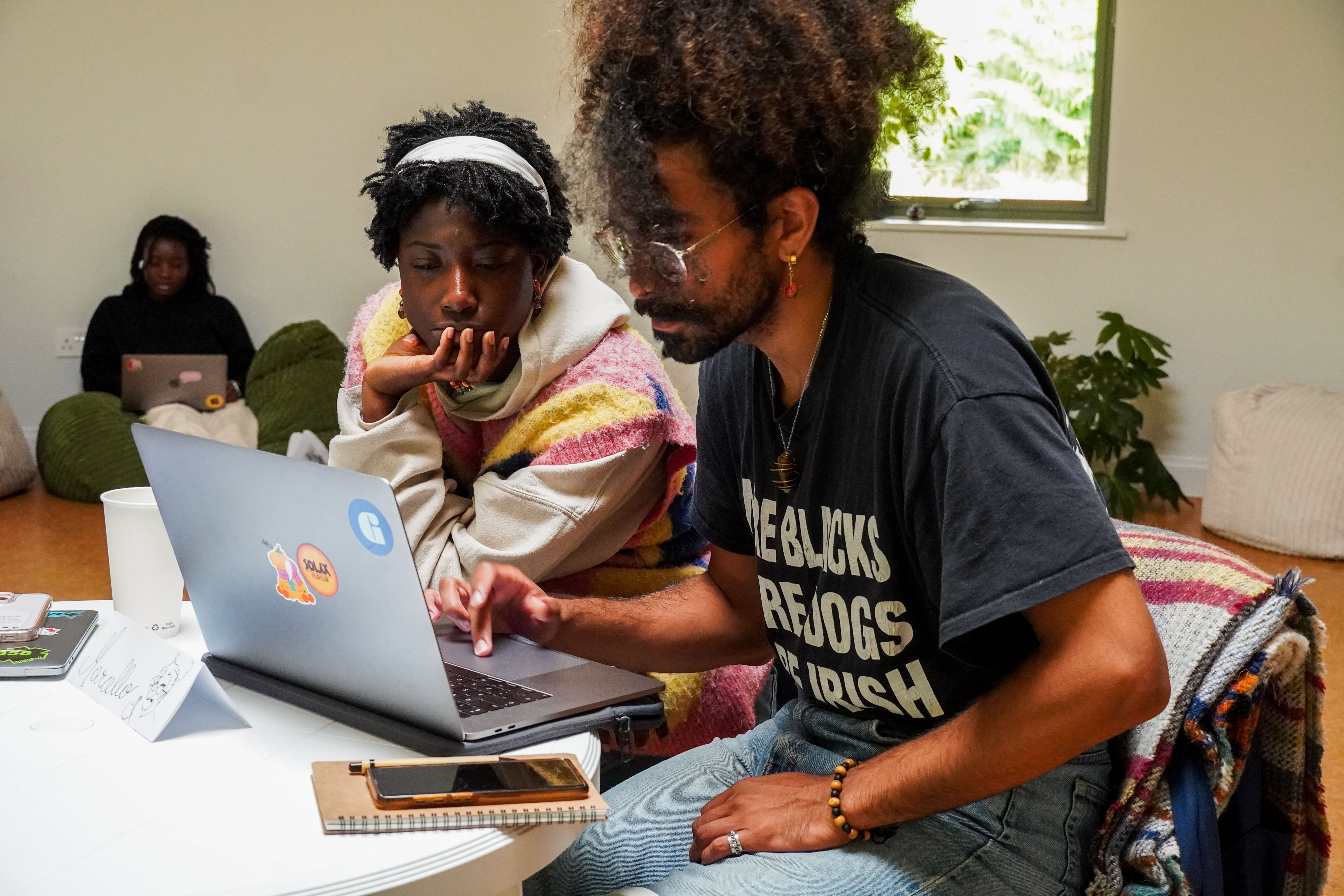Stories
Jul 31, 2025
Close-Up Residency Winner 2025: Marcello Fidelis on Storytelling, Belonging, and Making Go Home


This summer, Marcello Fidelis joined the Close-Up Summer Residency 2025. a week-long programme that took place from 30th June to 6th July at The Deerstone Eco Hideaway, Laragh, Co. Wicklow. Designed to support emerging filmmakers from ethnically diverse backgrounds, the residency offered mentorship, and industry guidance to develop powerful short film ideas. Marcello’s project, Go Home, stood out for its raw emotional honesty and urgent social commentary and was awarded €2,500 in seed funding to support its development and production. He spoke to our Digital Marketing and Communications Executive, Eilís Walsh, about the week, the impact of community, and what comes next.
How did the Close-Up Summer Residency help strengthen your idea for Go Home?
I would not have had the time or the space mentally to properly develop this project if it wasn't for the residency. It was a week where, even though my mind was still elsewhere, I was able to spend time away from the master’s and home obligations, all the things that usually occupy space in my mind.
In terms of priorities, Go Home would’ve been one of the last ones I’d get to. But the whole programme gave me space to reallocate things and give the project the traction it needed to grow. That was my mindset even before knowing whether I’d win or not, I wanted to finish the week with a skeleton of a project that I could keep nurturing.
That skeleton is the basis for everything. It made the week so much easier. And just looking at all the projects that the other participants had, the way they were formed and molded throughout the week, it was amazing. Some people came in unsure, and by the end they were like: "This is my idea. This is my pitch. This is what I want to do." And they all did wonderfully well. Their ideas developed beautifully.
Were there any workshops or sessions that stood out to you?
They were all useful and very clear about what they wanted to give us. For example, the editing workshop with Ray was extremely useful, very insightful. It helped me think about things I hadn’t thought of before. The camera workshop with Jite as well. And Anna’s plan for the week, that whole structure, was so solid. In just five days, it taught us how to take a tiny idea and develop it into something pitchable.
That’s not something we really do in college. We might touch on it, but we don’t go deep or get to practise it much. It’s usually just something to get a mark.
What was it like collaborating and exchanging ideas with the other filmmakers?
It was great. It felt like a safe space to develop ideas. From day one, we were encouraged to give feedback, exchange ideas, and that made all of our projects stronger. Go Home wouldn’t have gotten to the pitch stage without the little inputs I got from others during the week.
I could clearly see the places where people had influenced the project, where someone suggested "try this" or "add that." And that feedback wasn’t just from facilitators, it came from our peers. I think we’re the next generation of filmmakers, and community is essential. Film is about collaboration. Sure, you can shoot everything by yourself, but it’s not going to be the same.
What’s Go Home about, and why was it important for you to tell this story now?
"Go home" is a sentence many immigrants have heard, whether in Ireland or elsewhere. It’s not isolated, it’s a global issue. It’s about the lack of integration policies, the lack of responsibility and awareness from governments, from society, and even from immigrants themselves sometimes.
For example, in Portugal, some Brazilians join far-right movements and say, "Immigrants shouldn’t be here." But they are immigrants. That individualism undermines the collaborative part of society. the part that actually makes society work.
There’s a lot of anger and discomfort when people face something they see as "strange." Not that I agree with that word, but it reflects a real dynamic. Take Northern Ireland, for example. People are putting up Union Jack flags to avoid being identified as immigrants. That fear is rising across Europe and the American continent - from a ex-colony perspective.
That’s why Go Home matters. It’s not just about a phrase, it’s layered. And I hope it opens a conversation, not just with filmmakers but with anyone who watches it.

What do you hope people take away from watching it?
I don’t expect one film to change someone’s life. Real change requires introspection. You need to feel safe enough in yourself to grow, to accept or challenge the behaviours around you.
Go Home might not cause a big shift, but if it sparks a "hmm," if someone thinks or has a conversation after watching, that’s enough. I want to invite conversation, not arguments. Twitter-style arguments lead nowhere. But a real conversation? That’s where learning begins.
What went through your head when you won the funding, and how have your plans progressed since?
Honestly? You can see it in the video, I was shocked. I didn’t think I was going to win. It’s not the kind of topic people usually feel excited about. And the other pitches were so strong, I could see them all being great films.
It hasn’t sunk in yet. My mind’s been busy with everything else. But I’ve already had a few conversations about the project, I’m thinking about locations, production, and a few people from the week, like Anne (Roper) and Jite (Birhire), have offered to help. I’m planning to have a few drafts ready by August so we can start developing it properly for the GORM Gathering showcase in October.
Would you recommend the residency to other young filmmakers?
Absolutely. It was mentally and physically intense, but so worth it. If you want to develop your skills and learn more about the practical side of the industry, apply. Ten out of ten. You’ll grow, you’ll learn, you’ll meet great people, and the space is really safe and supportive. You also get fed well! You make friends. You grow. It’s a win-win situation.
What did the experience unlock for you that you didn’t have before?
My experience of the industry in Ireland has had positives and negatives, especially around diversity, particularly behind the camera. Sometimes the reality isn’t great. But I left the week feeling like the people there genuinely wanted to keep working together and keep that channel of conversation open. That sense of community was refreshing. Not that I haven’t had it elsewhere, but here it felt real, it didn’t feel like we were just "plus ones."
Seeing people still talking in the group chat afterwards, helping each other, that’s the kind of industry I want to be part of.
With thanks to the Close-Up funders, Screen Ireland, the Arts Council of Ireland, the Department of Children, Equality, Disability, Integration and Youth, and Coimisiún na Meán, as well as the brilliant GORM team, facilitators, and the 2025 cohort whose creativity, openness, and generosity made this residency so special.
We’re always looking for organisations and collaborators to help us reach more underrepresented creatives and expand the impact of this work. If that sounds like something your team would be interested in, we’d love to connect - info@gormmedia.com.
EXPLORE OUR PROGRAMMES
%20(2).png)
.png)